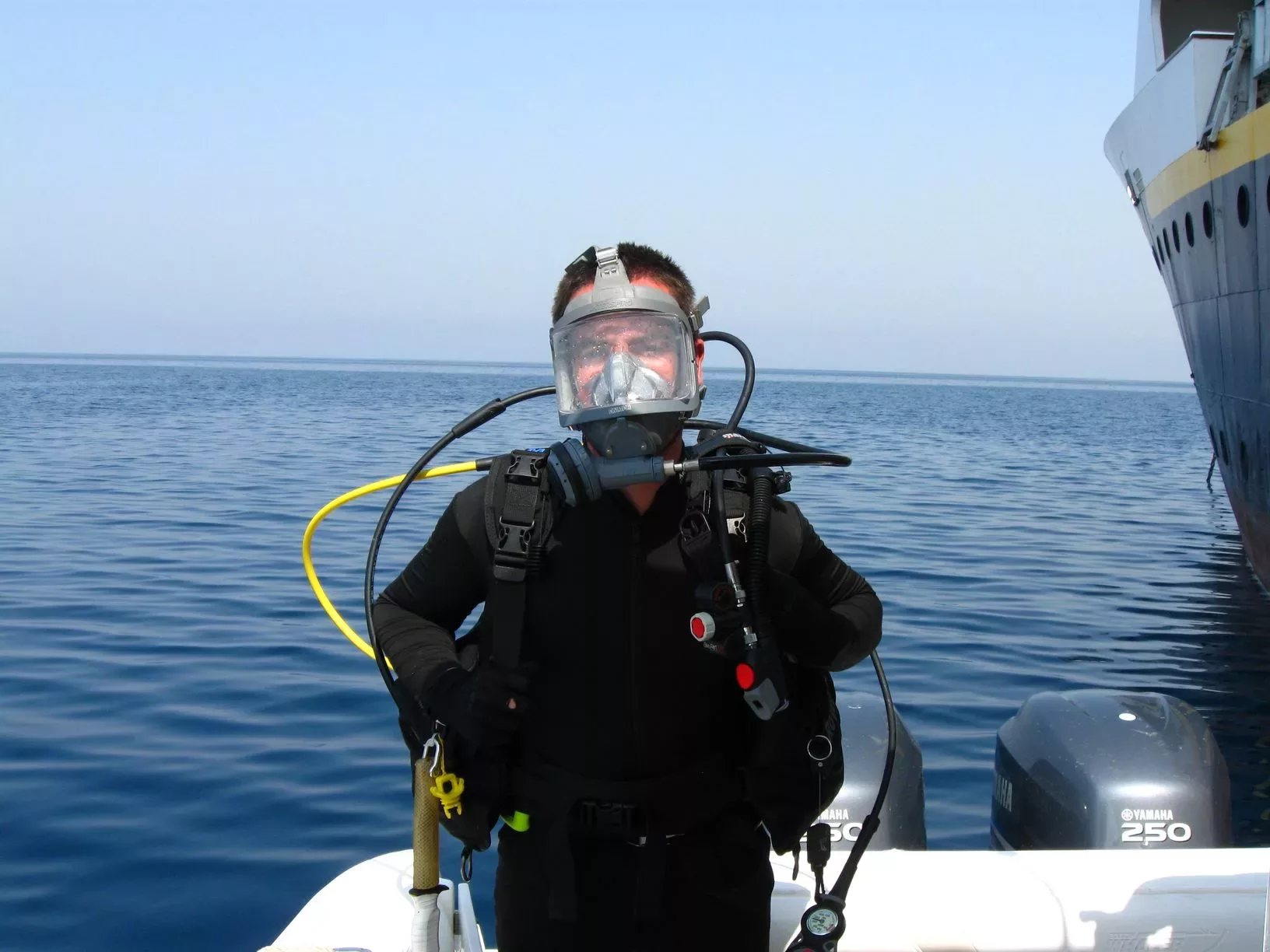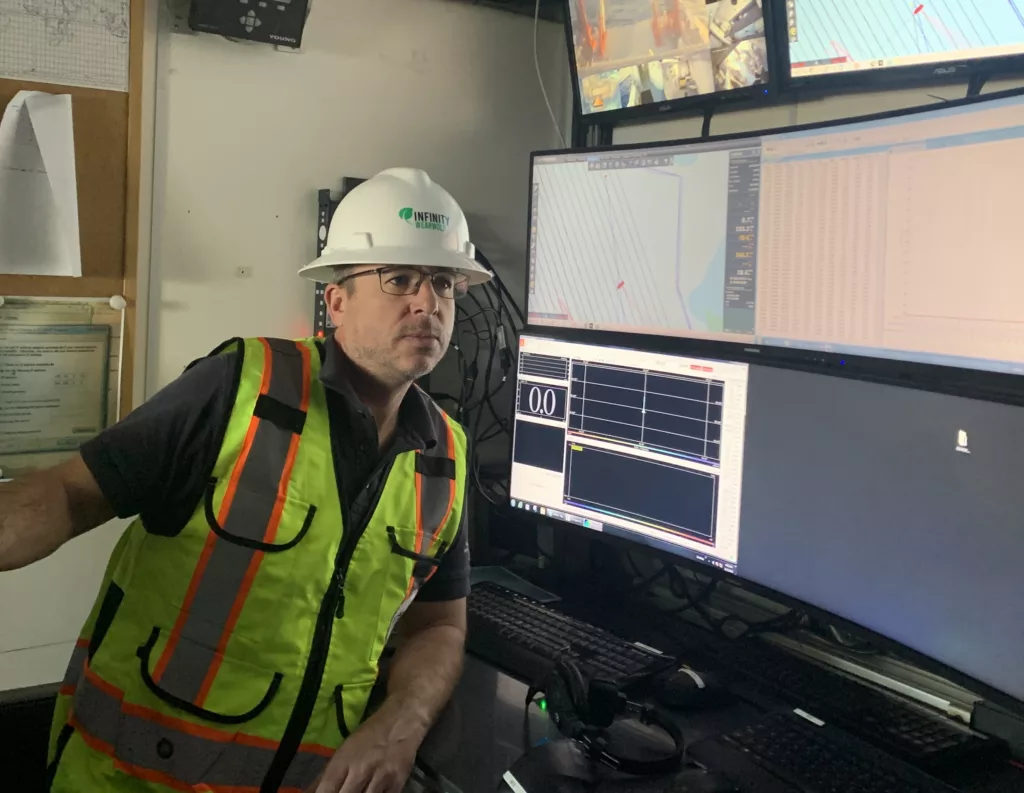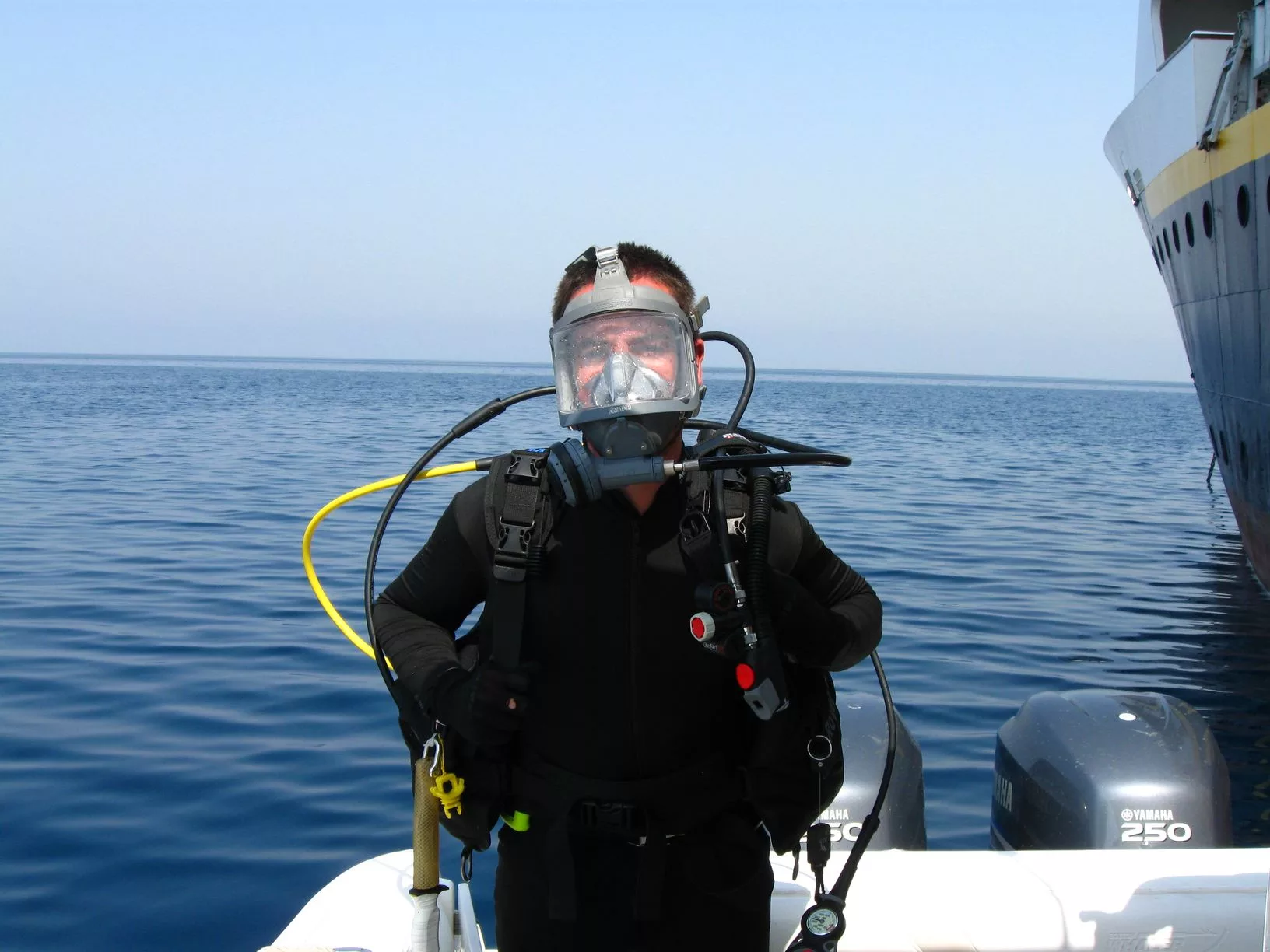
Frank Mallon, Head of Marine and Archaeology at Shamal Technologies pictured in dive gear.
We recently sat down with Francis Mallon, Head of Marine and Archaeology for Shamal Technologies, over a Teams call to talk about his career exploring all that lies beneath the surface – on both land and water – and his vision for the future working with Harvest Technology Group. Shamal is Harvest Technology Group’s newest partner, recently signing a Reseller Agreement for the Kingdom of Saudi Arabia. The tech start-up is housed at the King Abdullah University of Science and Technology (KAUST) in Saudi Arabia and for Harvest, the partnership promises to open doors to the Middle East. Meanwhile, for Shamal, Harvest’s technology is set to supercharge its remote, subsea and terrestrial data-sharing capabilities allowing it to do more good work protecting marine life, surveying remote locations and keeping people safe.
Describe Shamal Technologies in a sentence…
We collect high-resolution environmental data using terrestrial and underwater autonomous robotics.
How did an Irishman end up working as a marine archaeologist in Saudi Arabia?
My degree was in Irish Archaeology, but I’ve always had a love for the sea. I started my career doing terrestrial rescue archaeology in Ireland. Six years in, I had the opportunity to work on a joint land and underwater archaeology excavation project in the medieval town of Kilkenny. I was particularly enthralled by the work carried out by the dive team, who lifted early medieval grave slabs, Cromwellian War cannonballs and other artefacts from the sea floor. They gave me the address of a military-base dive training centre in the UK, and by the next week, I had resigned from my job and signed up for the commercial diving course. From there, I went straight into working for the UK and Irish governments on underwater archaeology projects protecting shipwrecks. Then in 2009, I moved to Saudi Arabia to head up the Oceanographic Science Research Centre here at KAUST.
What is KAUST?
KAUST stands for King Abdullah University of Science and Technology. It’s located on the Red Sea coast in Saudi Arabia and is home to the Oceanographic Science Research Centre, where I first worked to support marine biologists, coral reef ecologists, and oceanographic scientists.
How did you move from KAUST to Shamal?
I was able to devote a quarter of my time at KAUST to working on a start-up, which was Shamal. The university has supported Shamal since its inception in 2019. When Shamal began to grow, I decided to focus my efforts on the start-up full-time and resigned from KAUST.
Why did you choose to partner with Harvest Technology Group?
Harvest’s technology is the most advanced in the world for live data streaming in remote locations using low bandwidth. This gives Shamal a competitive edge in the Middle East region and allows us to access data in real-time, so we can work faster, more efficiently, and with greater safety.
Are there any upcoming projects where Shamal will use Harvest’s technology?
Yes, we are currently undertaking a pilot project to monitor turtle nesting using drones equipped with thermal cameras. We plan to use Harvest’s streaming technology to minimise disturbances caused by human presence and to make better environmental decisions.
What is the most remote place you’ve explored?
The bottom of the Red Sea, which is about 2.56 kilometres deep in the centre and grows about four millimetres every year due to the movement of tectonic plates.
Looking into the future, what would you like to see through this partnership between Shamal and Harvest?
I would love to have multiple regional robotic hubs where we can sit back at base and if something’s needed, we could evoke a rapid response. For example, just before Christmas, we sent drones to a collapsed mine to map it out from above. We couldn’t send anybody in on foot because it was too dangerous. If we had regional hubs, with airborne, terrestrial and subsea robots equipped with Harvest’s tech, we could support the entire region without needing to travel to these harsh environments. You don’t want to be standing in the desert getting sunburned for 12 hours while operating a drone. The future between our two companies could see us controlling and monitoring airborne, terrestrial and underwater vehicles from KAUST and only travelling to site every few months for maintenance checks and battery changes. With Harvest’s help, we would be the leader in survey, environmental and data collection across the Middle East.

Follow Harvest Technology Group on LinkedIn for our latest news and updates.
